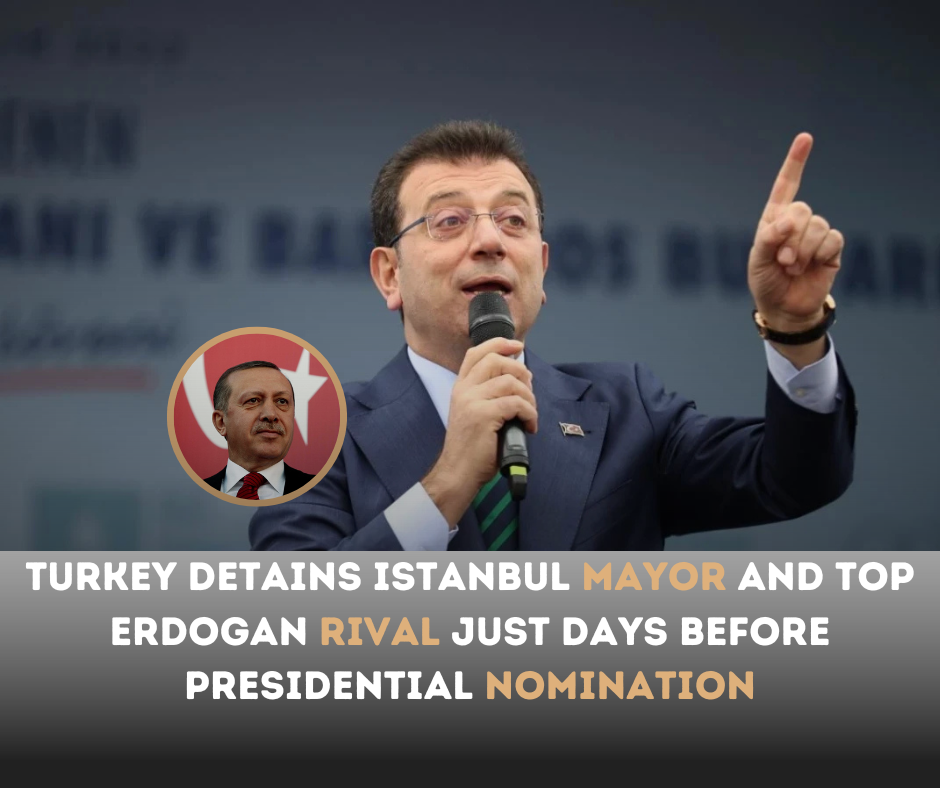In a significant political development, Turkish authorities have detained Istanbul Mayor Ekrem İmamoğlu, a prominent opposition figure and key rival to President Recep Tayyip Erdoğan. The arrest occurred just days before İmamoğlu was expected to be nominated as the presidential candidate for the opposition Republican People’s Party (CHP).
Charges and Allegations
İmamoğlu faces charges including corruption and alleged links to terrorist organizations, specifically accusations of connections to the outlawed Kurdistan Workers’ Party (PKK). These allegations have been met with skepticism by his supporters, who view the arrest as a politically motivated attempt to sideline a formidable opponent ahead of the upcoming elections.
Political Implications
The timing of the detention has raised concerns about the state of democracy in Turkey. İmamoğlu, who previously defeated Erdoğan’s party in the 2019 Istanbul mayoral elections and secured re-election in 2024, has been considered a strong contender for the presidency. His arrest not only disrupts the opposition’s plans but also highlights the increasing tensions between the government and opposition parties.
International and Domestic Reactions
The arrest has drawn international criticism, with countries like Germany condemning the move as a setback for democratic processes. Domestically, the CHP and other opposition groups have denounced the detentions and called for protests. In response, Istanbul’s governor’s office has imposed a four-day ban on protests and public gatherings, citing security concerns.
Economic Impact
The political unrest has also affected Turkey’s financial markets. Following the news of İmamoğlu’s detention, the Istanbul Stock Exchange experienced a significant drop, and the Turkish lira depreciated, reflecting investor apprehension about the country’s political stability.
Background
İmamoğlu’s political journey mirrors that of Erdoğan, with both having served as mayors of Istanbul and faced legal challenges. Despite previous legal obstacles, including a defamation conviction that barred him from the 2023 election, İmamoğlu has remained a resilient figure in Turkish politics. However, the recent annulment of his university degree poses a new challenge, as it could impede his eligibility to run in the 2028 presidential election, given that a higher education degree is a requirement for candidacy.
Conclusion
The detention of Ekrem İmamoğlu marks a pivotal moment in Turkish politics, with potential ramifications for the country’s democratic institutions and electoral processes. As the situation unfolds, both domestic and international observers are closely monitoring the developments, concerned about the implications for Turkey’s political future.
